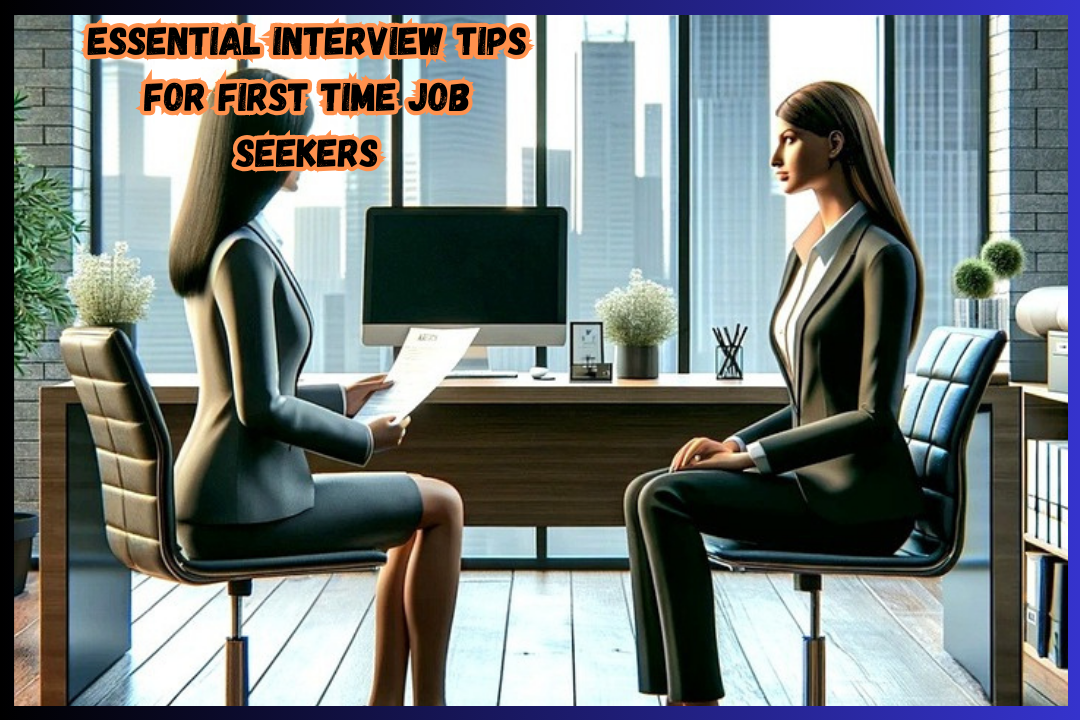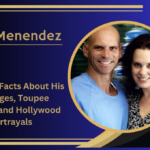Essential Interview Tips for First Time Job Seekers
Landing your first job is an exciting and nerve-wracking experience. For first-time job seekers, preparing for a job interview is crucial for success. The interview is your opportunity to not only showcase your qualifications but also highlight your personality, enthusiasm, and how well you fit the job and company culture. To help you make a lasting impression, we’ve compiled a comprehensive guide with essential tips to ensure you walk into the interview confidently and leave a positive impact.
1. Be On Time – Punctuality is Key
Arriving on time is essential. Being punctual demonstrates your professionalism, respect for the interviewer’s time, and genuine interest in the position.
Tips for Being On Time:
| Tip | Description |
|---|---|
| Arrive Early | Aim to arrive 10-15 minutes early to allow time to settle in and avoid rushing. |
| Plan Your Route | Check traffic conditions and parking availability in advance. |
| Prepare in Advance | Have everything ready the night before—your resume, portfolio, and outfit. |
2. Know the Interviewer’s Name and How to Pronounce It
Acknowledge the interviewer by name as this can help build rapport. Make sure you know how to pronounce their name correctly, as mispronunciations can leave a negative impression.
How to Ensure Correct Pronunciation:
- Research the name online: If you’re unsure about the pronunciation, search for it.
- Ask politely: If you’re uncertain, ask the interviewer at the start, “Could you please confirm the correct pronunciation of your name?”
3. Prepare Thoughtful Questions
Having questions ready for the interviewer shows you’ve done your homework and are genuinely interested in the role. The right questions can also help you evaluate if the position is the right fit for you.
Sample Questions to Ask:
| Question | Purpose |
|---|---|
| “What are the biggest challenges the company is currently facing?” | Understand the company’s pain points and how you can contribute. |
| “How do you define success for this role?” | Clarifies expectations for the job and helps you assess if they align with your goals. |
| “What does the team culture look like?” | Gives insight into the work environment and the team dynamics. |
4. Bring Copies of Your Resume and Supporting Documents
Always bring multiple copies of your resume to an interview, along with any supporting documents, such as a portfolio, certifications, or transcripts. Being well-prepared shows professionalism and confidence.
Documents to Bring:
- Multiple copies of your resume
- Portfolio or work samples (if applicable)
- References list (if asked)
- Transcripts or certificates (if relevant to the job)
5. Carry a Reliable Pen and Notepad – But Don’t Take Notes During the Interview
While it’s helpful to have a pen and notepad for writing down key points after the interview, avoid taking notes while the interviewer is speaking. Focus on active listening, and take mental notes instead.
Notepad Tips:
- Use it for post-interview reflection: Write down your thoughts after the interview.
- Be mindful of distractions: Keep your pen and notepad within easy reach but don’t let them distract you.
6. Greet the Interviewer with Confidence
Your greeting sets the tone for the interview. Greet the interviewer with a firm handshake, a friendly smile, and maintain appropriate eye contact. This simple act conveys confidence and respect.
What to Do:
- Smile: A genuine smile helps break the ice.
- Handshakes: A firm handshake conveys confidence without being overpowering.
- Eye Contact: Show interest by maintaining natural eye contact, but avoid staring.
7. Build Rapport Before Jumping into the Interview
Starting with some small talk can help both you and the interviewer feel more at ease. A brief friendly conversation can help the interview flow naturally, creating a relaxed atmosphere for a more comfortable exchange.
Topics to Consider for Small Talk:
- Compliment the office or the team’s workspace.
- Ask about their day or any recent company achievements.
- Discuss common interests or the weather.
8. Embrace Your Nerves – They’re Normal
Feeling nervous is completely natural, especially for first-time job seekers. Rather than trying to hide it, embrace your nerves and turn them into positive energy. Interviewers understand that candidates can be anxious.
How to Handle Nerves:
- Breathe deeply: Slow, deep breaths can help calm your nerves.
- Focus on the task: Shift your attention from your anxiety to the conversation.
- Remember the interview is a two-way street: You’re evaluating the job just as much as they’re evaluating you.
9. Focus on Your Strengths and Transferable Skills
As a first-time job seeker, you may not have extensive experience, but you can still highlight your strengths and transferable skills. Emphasize how your academic background, part-time jobs, volunteer work, or personal projects have equipped you with skills relevant to the role.
Skills to Highlight:
| Skill | How to Showcase It |
|---|---|
| Communication | Mention your experience in group projects or customer service. |
| Time Management | Highlight how you managed school deadlines or extracurricular activities. |
| Problem-Solving | Discuss any challenges you faced and how you overcame them. |
10. Be Honest – Transparency Builds Trust
Honesty is critical in an interview. If you don’t have experience in certain areas, be open about it but show your willingness to learn and adapt. Employers value honesty over embellishments.
Tips for Being Honest:
- Acknowledge your gaps: If you lack certain skills, mention how you’re eager to acquire them.
- Highlight your learning attitude: Show how you quickly pick up new skills or concepts.
11. Listen Carefully and Answer Clearly
Active listening is just as important as speaking during an interview. Take time to understand the question before you respond. If the question is unclear, don’t hesitate to ask for clarification.
How to Listen Actively:
- Don’t interrupt: Let the interviewer finish before you speak.
- Pause before responding: Think carefully about your answer.
- Clarify if needed: “Could you please clarify what you mean by…?”
12. Be Diplomatic About Past Experiences
If you’re asked about your previous work, school experiences, or challenges, always keep the conversation professional and positive. Avoid speaking negatively about former employers, colleagues, or professors.
What to Say:
- Focus on what you’ve learned from each experience.
- Emphasize how you overcame challenges and grew from them.
13. Pay Attention to Grammar and Language
Your language and communication style are important. While you don’t need to speak in overly formal language, make sure your speech is clear, polite, and free from slang or inappropriate terms.
Language Tips:
- Speak clearly: Avoid mumbling or speaking too quickly.
- Use positive language: Focus on what you’ve learned rather than what you lack.
- Avoid fillers: Minimize the use of “um,” “like,” or “you know.”
14. Be Prepared for Personal or Sensitive Questions
Some interview questions may feel personal or uncomfortable. While certain questions may be illegal, it’s still important to stay calm and professional. You can politely steer the conversation back to relevant topics if needed.
How to Handle Sensitive Questions:
- Stay calm: Don’t react defensively.
- Redirect the conversation: “I prefer to focus on how my skills can contribute to the role.”
15. Send a Thank-You Note After the Interview
Sending a thank-you note or email after the interview is a great way to leave a positive impression. This note should express gratitude for the opportunity, reaffirm your interest in the position, and highlight why you’re a great fit for the role.
What to Include in Your Thank-You Note:
| Element | Purpose |
|---|---|
| Thank You | Show appreciation for the interviewer’s time and consideration. |
| Reaffirm Interest | Reiterate your enthusiasm for the position and the company. |
| Mention Key Skills | Highlight how your skills and experience align with the role. |
Conclusion(Essential Interview Tips for First Time Job Seekers)
Job interviews can be nerve-wracking, but with preparation, confidence, and the right approach, you can stand out as a strong candidate. Remember, the interview is not only an opportunity to showcase your qualifications but also to demonstrate your enthusiasm, communication skills, and personality. By following these essential tips, you’ll improve your chances of making a great impression and landing the job you desire.
FAQs
1. How early should I arrive for an interview?
Aim to arrive 10-15 minutes early. It shows punctuality and gives you time to calm your nerves.
2. What should I bring to the interview?
Bring multiple copies of your resume, portfolio (if applicable), and any supporting documents requested by the employer.
3. How do I handle nerves during an interview?
Take deep breaths, focus on staying calm, and remember that nerves are natural. The interview is a chance for you to learn about the company too.
4. Is it okay to ask questions during the interview?
Yes, asking thoughtful questions demonstrates your interest and helps you assess if the role is right for you.
5. What should I do after the interview?
Send a thank-you note or email to express your appreciation and reaffirm your interest in the role.






